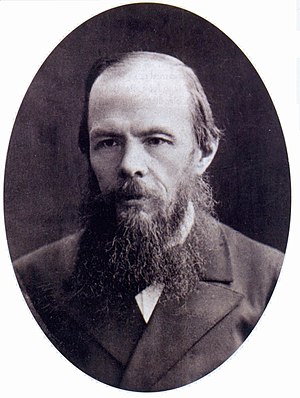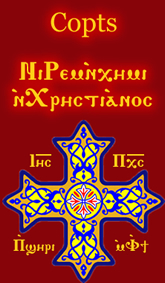
Nejime Shōichi (ねじめ 正一, 祢寝 正一, born June 16, 1948) is a Japanese poet and novelist[1] born on June 16, 1948.[2] He dropped out of Aoyama Gakuin University while he was majoring in economics.


Nejime Shōichi (ねじめ 正一, 祢寝 正一?, born June 16, 1948) is a Japanese poet and novelist[1] born on June 16, 1948.[2] He dropped out of Aoyama Gakuin University while he was majoring in economics.

The Republic of China calendar (traditional Chinese: 民國紀元; simplified Chinese: 民国纪元; pinyin: Mínguó jìyuán; Wade–Giles: Min-kuo Chi-yüan) is the method of numbering years currently used in the Republic of China (ROC) (Taiwan, Kinmen, and Matsu). It was used in mainland China from 1912 until the founding of the People's Republic of China in 1949.
Following the Chinese imperial tradition of using the sovereign's era name and year of reign, official ROC documents use the Republic (traditional Chinese: 民國; simplified Chinese: 民国; pinyin: Mínguó; Wade–Giles: Min-kuo; literally "The Country of the People") system of numbering years in which the first year was 1912, the year of the founding of the Republic of China. For example, 2013 is the "102nd year of the Republic". Months and days are numbered according to the Gregorian calendar.
To find out the ROC year equivalent to any Gregorian calendar (AD) year, subtract 1911 from the Gregorian year. For example: 2013 - 1911 = 102nd year of the Republic.


Wilford H. Ketz (May 4, 1906 – February 26, 1991) was an American track and field athlete and athletic administrator. As a member of the Michigan Wolverines men's track and field team, he was a two-time All-American and won the 1928 NCAA Championship in the hammer throw. He worked for Union College in Schenectady, New York from 1931 to 1971, holding positions as the track and cross country coach (1931–1967), athletic director (1953–1969), and director of institutional studies (1960–1971). He also served as the president of the IC4A and on the executive committee of the NCAA. He was inducted into the National Collegiate Association of Directors of Athletics (NCADA) Hall of Fame in 1978. In 2012, he was inducted into the University of Michigan Track and Field Hall of Fame.

Fyodor Mikhailovich Dostoyevsky[a] (Russian: Фёдор Миха́йлович Достое́вский, IPA: [ˈfʲodər mʲɪˈxajləvʲɪt͡ɕ dəstɐˈjefskʲɪj] (![]() listen); 11 November 1821 – 9 February 1881[b]), sometimes transliterated Dostoevsky, was a Russian novelist, short story writer, essayist and philosopher. Dostoyevsky's literary works explore human psychology in the context of the troubled political, social, and spiritual atmosphere of 19th-century Russia. He began writing in his 20s, and his first novel, Poor Folk, was published in 1846 when he was 25. His major works include Crime and Punishment (1866), The Idiot (1869), and The Brothers Karamazov (1880). His output consists of eleven novels, three novellas, seventeen short novels and numerous other works. Many literary critics rate him as one of the greatest and most prominent psychologists in world literature.[1]
listen); 11 November 1821 – 9 February 1881[b]), sometimes transliterated Dostoevsky, was a Russian novelist, short story writer, essayist and philosopher. Dostoyevsky's literary works explore human psychology in the context of the troubled political, social, and spiritual atmosphere of 19th-century Russia. He began writing in his 20s, and his first novel, Poor Folk, was published in 1846 when he was 25. His major works include Crime and Punishment (1866), The Idiot (1869), and The Brothers Karamazov (1880). His output consists of eleven novels, three novellas, seventeen short novels and numerous other works. Many literary critics rate him as one of the greatest and most prominent psychologists in world literature.[1]
Born in Moscow in 1821, Dostoyevsky was introduced to literature at an early age through fairy tales and legends, and through books by Russian and foreign authors. His mother died in 1837, when he was 15, and around the same time he left school to enter the Nikolayev Military Engineering Institute. After graduating, he worked as an engineer and briefly enjoyed a lavish lifestyle, translating books to earn extra money. In the mid-1840s he wrote his first novel, Poor Folk, which gained him entry into St. Petersburg's literary circles.

In 1849 he was arrested for his involvement in the Petrashevsky Circle, a secret society of liberal utopians that also functioned as a literary discussion group.[2] He and other members were condemned to death, but at the last moment, a note fromTsar Nicholas I was delivered to the scene of the firing squad, commuting the sentence to four years' hard labour in Siberia. His seizures, which may have started in 1839, increased in frequency there, and he was diagnosed with epilepsy. On his release, he was forced to serve as a soldier, before being discharged on grounds of ill health.
In the following years, Dostoyevsky worked as a journalist, publishing and editing several magazines of his own and, later, A Writer's Diary, a collection of his writings. He began to travel around western Europe and developed a gambling addiction, which led to financial hardship. For a time, he had to beg for money, but he eventually became one of the most widely read and highly regarded Russian writers. His books have been translated into more than 170 languages and have sold around 15 million copies. Dostoyevsky influenced a multitude of writers, from Anton Chekhov and James Joyce to Ernest Hemingway and Jean-Paul Sartre.

The Ethiopian calendar (Amharic: የኢትዮጵያ ዘመን አቆጣጠር yä'Ityoṗṗya zämän aḳoṭaṭär), also called the Ge'ez calendar, is the principal calendar used in Ethiopia and also serves as the liturgical calendar for Christians in Eritrea and Ethiopiabelonging to the Orthodox Tewahedo churches, Eastern Catholic Church and Lutheran Orthodox Church. It is a sidereal calendar based on the older Alexandrian or Coptic calendar, which in turn derives from the Egyptian calendar, but like theJulian calendar, it adds a leap day every four years without exception, and begins the year on August 29 or August 30 in the Julian calendar. A seven- to eight-year gap between the Ethiopian and Gregorian calendars results from an alternate calculation in determining the date of the Annunciation of Jesus.

Like the Coptic calendar, the Ethiopic or Ge'ez calendar has twelve months of exactly 30 days each plus five or six epagomenal days, which comprise a thirteenth month. The Ethiopian months begin on the same days as those of the Coptic calendar, but their names are in Ge'ez. The sixth epagomenal day is added every four years without exception on August 29 of the Julian calendar, six months before the Julian leap day. Thus the first day of the Ethiopian year, 1 Mäskäräm, for years between 1901 and 2099 (inclusive), is usually September 11 (Gregorian). It, however, falls on September 12 in years before the Gregorian leap year.
The current year according to the Ethiopian calendar is 2005, which began on September 11, 2012 AD of the Gregorian calendar.


Priyanka Chopra (born 1982) is an Indian film actress and singer, and was the winner of the Miss World pageant of 2000. She has become one of Bollywood's highest-paid actresses and one of the most popular celebrities in India. She has won a National Film Award for Best Actress and Filmfare Awards in four categories. She made her acting debut in the Tamil film Thamizhan in 2002. The following year, she starred in The Hero, her first Hindi film release, and followed it with the box-office hit Andaaz. She subsequently earned critical recognition as a seductress in the 2004 thriller Aitraaz. By 2006, Chopra had established herself as a leading actress of Hindi cinema with starring roles in the highly successful films Krrish and Don. After receiving mixed reviews for a series of unsuccessful films, she received critical acclaim for her portrayal of unconventional characters, including a troubled model in the 2008 drama Fashion, a feisty Marathi woman in the 2009 caper thriller Kaminey, a serial killer in the 2011 neo-noir 7 Khoon Maaf, and an autistic woman in the 2012 romantic comedy Barfi! She released her first music single "In My City" in 2012, and her second single "Exotic" in 2013.
